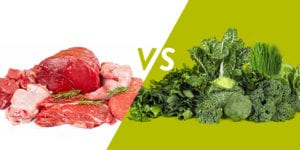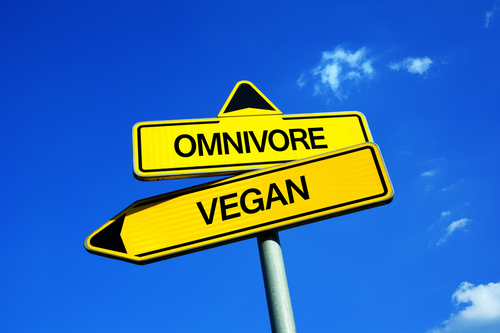The Protein Controversy: Vegan vs Omnivore
The general population firmly believes that protein intake is of utmost importance for health, weight loss and muscle gain. This however appears to be an idea that has been sold to us, rather than being based on scientific evidence. Not all protein is created equal. The argument of animal protein being the “only” protein source is a common belief. Animal meat/protein is more difficult to digest, metabolize and absorb than plant protein, the body works harder to break it down. Plant protein is easier for the digestive system to metabolize and absorb, period. It is not that meat eaters are wrong, or plant eaters are right, But let us look at some of the facts…
Dr. T. Campbell, the author of “The China Study” the most comprehensive, longest and largest documented study of the effects of nutrition over a 20 year period, states that the human body needs a diet of approximately 10% protein to be healthy. The average American consumes 15-16% protein and mostly from animal sources. According to Dr. Campbell’s research more animal protein from meat and dairy were fed to experimental rats from 5% to 20% intake. At 20% the rats developed cancerous tumors and cancer markers in their livers. Rats being fed a plant protein diet of 10-20% on the other hand did not develop these tumors or markers. In fact they discovered they could begin to reverse the tumor development or “switch off” the cancer cells by switching to the plant protein diet (Source: The China Study).
When animal protein is broken down it oxidizes and creates free radicals as a by-product which are cancer causing. This kind of diet is more acidic than an alkaline plant based one. His research also studied the incidence of cancer throughout China over 20 years and discovered that diet and nutrition played a large role in cancer development and the type of cancer prevalent based on geographical area and commonly consumed foods in those areas. His research concluded that a plant based, whole foods diet was the safest and healthiest diet for preventing chronic illness and cancer. I recommend reading his research study as it is very informative and intriguing.
While proteins are the building blocks for tissue and cellular repair, our dietary intake does not need to be as high as many think. The question often posed to many vegans/vegetarians “Well how do you get your protein?” is a mislead and misinformed one. Simply said, it is very easy to get enough protein from plant sources. Following a vegan/whole foods diet is not only beneficial to decrease cancer risks, it also decreases cholesterol levels, hypertension, cardiovascular disease and the list goes on.
However, it is important to note that I have said a whole foods diet (I prefer the term lifestyle to diet). Not all vegan/vegetarian foods are healthy. Food processing is still food processing – full of fats, chemicals, additives, excitotoxins, etc. A bag of chips and a coke could be considered a vegan meal for example. However, while plant protein may be more absorbable vegans/vegetarians need to ensure that they are using a variety of sources as no single source of plant protein contains all the necessary essential amino acids, whereas often meat sources do.
From a personal standpoint I switched to a vegan diet 3 years ago. I compete competitively in endurance sports (triathlons – currently training for an Ironman and have completed numerous other distances) and have lost over 65lbs by changing my lifestyle to a whole foods vegan diet. I am not protein deficient, iron deficient or deficient of any other nutrient. It is all about balance and planning. I have more energy for my sport than I did when I ate meat and dairy, I weigh less and overall have a better outlook on life. I feel there is proof in the pudding so to speak.
Other benefits of vegan/vegetarian “diet”:
- Decreased or normal BMI, decreased obesity
- Decreased inflammation, more energy, decreased risk of diabetes and many other chronic illnesses
- Ability to heal through food
- Less free radical production, more antioxidant intake
- Healthy, glowing skin
- Animal friendly and humane
Things to Consider when following a vegan “diet”:
- More difficult to get adequate intake of iron, B12, calcium (selenium, zinc and copper if soils are deficient)
- Proper meal preparation and planning needed to ensure all nutritional needs are met (although this is true of any healthy lifestyle)
- Supplementation of some nutrients may be necessary (eg. B12which can be difficult to get from plant sources in high enough quantity)

Interesting reads/documentaries:



